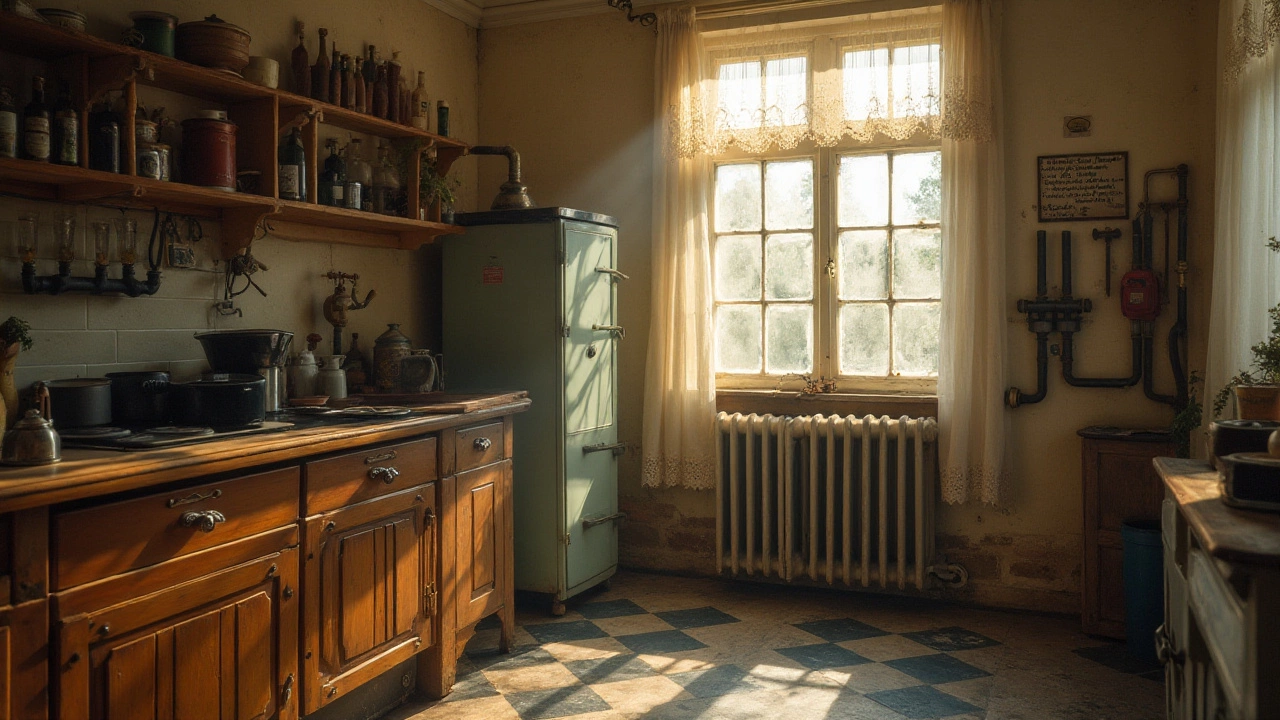Old Water Heater: When to Repair, When to Replace
If your water heater’s been humming for years, chances are it’s showing its age. A tired heater can make showers lukewarm, leak water, or make strange noises. Before you call a pro, it helps to know what’s actually wrong and if a fix will last.
First thing to check is the age. Most tanks last 8‑12 years. Anything older? That’s a red flag. Older units are less efficient, meaning higher bills, and they’re more prone to leaks that can damage floors.
Common Signs Your Heater Is Past Its Prime
1. Cold showers – If you’re waiting forever for hot water, the heating element or thermostat could be failing.
2. Rusty or cloudy water – This usually means the tank is corroding inside. The water may look discolored, and it can leave stains on fixtures.
3. Strange noises – Rumbling, popping, or ticking often signals sediment build‑up. Sediment can scar the tank, cutting its life short.
4. Visible leaks – A drip at the bottom is a clear sign the tank’s lining is cracked. Even a small leak can become a big flood fast.
5. High energy bills – Older models lose heat faster. If your electric or gas bill suddenly spikes, the heater could be the culprit.
When any of these pop up, write them down. It’ll help a technician pinpoint the issue, or you can use them to decide if a DIY fix makes sense.
DIY Fixes and Safety Tips
Not every problem needs a pro. Here are three quick fixes you can try safely:
Reset the thermostat – For electric heaters, locate the reset button (usually a red button on the thermostat). Press it firmly for a few seconds. If the heater won’t turn on, you might need to turn off the breaker first – always do this to avoid shocks.
Flush the tank – Sediment is a common cause of noisy tanks. Turn off power or gas, let the water cool, then attach a garden hose to the drain valve and run water until it’s clear. This can add years to the heater’s life.
Check the pressure valve – The temperature‑pressure relief (TPR) valve should release steam if pressure builds up. Lift the lever briefly; you should see a burst of water. If nothing happens, the valve may be stuck and needs replacement.
Remember, safety first. Always shut off the power (breaker) or gas supply before opening the tank. If you smell gas, leave the house and call a professional right away.
If the fixes above don’t solve the problem, weigh repair versus replacement. A single component repair (like a thermostat) usually costs under £150. Replacing a whole tank can run £500‑£1,200 depending on size and type. If the heater is over 10 years old, has multiple issues, or you’re facing repeated repairs, swapping it out often saves money in the long run.
When you decide to replace, look for high‑efficiency models. On gas, an condensing unit can cut bills by up to 30%. On electric, a heat‑pump water heater uses less electricity but costs more upfront. Factor in rebates or local incentives – they can offset the higher price.
Bottom line: an old water heater isn’t a death sentence for your hot water. Check the signs, try a few safe fixes, and decide based on age, cost, and how often you’ve needed repairs. When in doubt, a quick call to a local pro can give you a clear quote and peace of mind.
22 June 2025
·
0 Comments
Wondering if it makes sense to repair a water heater that's been running for two decades? This article breaks down the real-world cost, safety, and efficiency issues owners of 20-year-old water heaters face. Get straight answers on telltale signs your unit is past its prime, and what to expect from repair versus replacement. Skip the guesswork with practical tips drawn from household experience, including what I’ve learned keeping my family’s water hot. Stop putting off the decision—here’s what you need to know before calling a plumber.
Read more
25 October 2024
·
0 Comments
Deciding whether to repair a 20-year-old water heater is a crucial financial and functional decision for homeowners. While the nostalgia and rugged construction of older models are appealing, aging components tend to be less efficient and could lead to unexpected costs. This article discusses the common problems these aging heaters face, potential repair costs, longevity expectations, and signs that indicate it's time to replace the water heater. Ultimately, understanding these factors will help homeowners make an informed decision about whether to repair or replace their old water heater.
Read more



